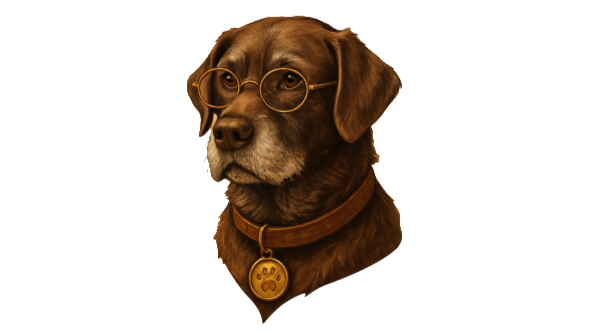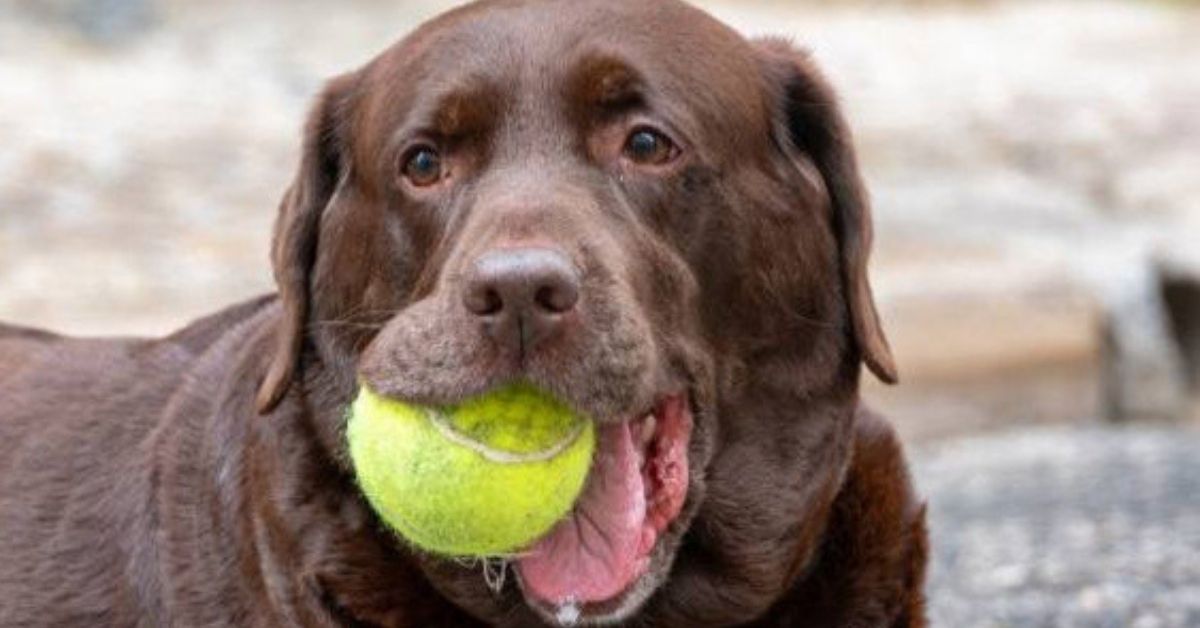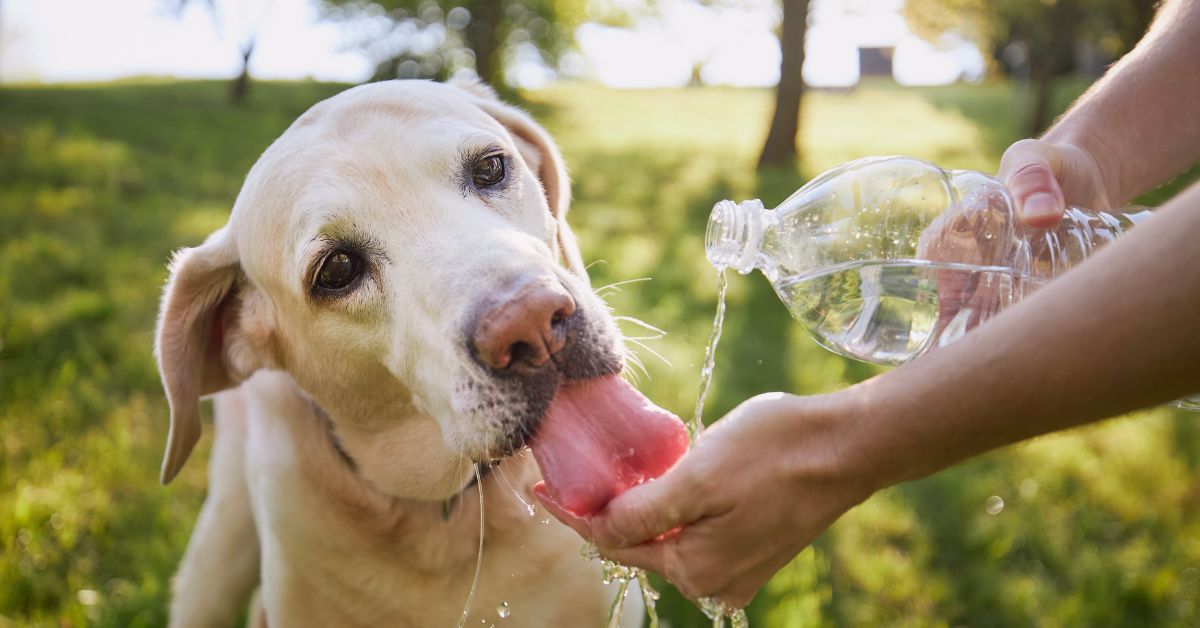
Sensory Enrichment for Senior Labradors: New Joy & Places
As your beloved Labrador Retriever enters their distinguished golden years, marked by graying whiskers and a more deliberate pace, you might be naturally tempted to keep things quiet, predictable, and safely routine. After all, they seem content sleeping more, moving slower, and sticking to familiar patterns that have brought comfort throughout their aging process. But here's a wonderful secret that many senior dog parents don't realize: your senior Labrador Retriever still absolutely loves adventure—and their brain, body, and spirit can truly benefit from continued exploration and new experiences in ways that are both profound and scientifically proven.
Labradors are inherently natural explorers, bred for generations to work alongside humans in diverse environments, from the icy waters of Newfoundland to the varied terrains of hunting grounds. This adventurous spirit doesn't simply disappear with age—it evolves, becoming more selective and deliberate, but remaining fundamentally intact. Even in their senior years, they can gain tremendous mental and emotional stimulation from experiences as simple as sniffing a new patch of grass rich with unfamiliar scents, hearing different birdsong that captures their attention, or feeling varied textures under their experienced paws.
The key lies in understanding that adventure for a senior Labrador doesn't mean returning to the high-energy expeditions of their youth. Instead, it means thoughtfully curated experiences that respect their current capabilities while still engaging their curiosity, intelligence, and zest for life that has defined their breed for centuries.
Understanding the Senior Labrador Mind: Why New Experiences Matter
Cognitive Function and Brain Health
As Labradors age, their brains undergo natural changes similar to those experienced by aging humans. Neural pathways that were once lightning-fast may slow down, memory formation can become less efficient, and processing new information might take longer. However, research in veterinary neuroscience has revealed that the aging brain retains remarkable plasticity—the ability to form new neural connections and adapt to new experiences throughout life.
When senior Labs encounter novel environments, their brains work harder to process unfamiliar sights, sounds, and especially scents. This increased neural activity essentially provides "exercise" for their minds, helping maintain cognitive function and potentially slowing the progression of age-related mental decline. The challenge of interpreting new sensory information keeps neural pathways active and engaged, much like crossword puzzles or learning new skills help maintain human cognitive health.
Emotional and Psychological Benefits
Senior dogs can experience depression, anxiety, and boredom just like their human counterparts, often related to physical limitations, changes in their environment, or reduced stimulation in their daily lives. The monotony of identical routines, while comforting to some degree, can also lead to mental stagnation and emotional flatness that diminishes their quality of life.
New experiences provide psychological benefits that extend far beyond simple entertainment. They offer mental challenges that create a sense of purpose and accomplishment, trigger the release of beneficial neurotransmitters that improve mood, and provide topics for their incredibly sophisticated olfactory "conversations" with the environment that keep them mentally engaged and emotionally satisfied.
🌿 Why It Matters: Enrichment Isn't Just for Puppies
The concept of environmental enrichment—providing animals with stimulating and challenging environments that allow them to express natural behaviors—is often associated with young, energetic animals. However, senior dogs are actually at higher risk of cognitive decline, emotional stagnation, and even depression, making enrichment potentially more crucial during their golden years than at any other life stage.
Combat Cognitive Dysfunction Through Neuroplasticity
New experiences actively promote neuroplasticity—the brain's remarkable ability to reorganize itself by forming new neural connections throughout life. For senior Labradors, this means that exposing them to novel environments, smells, sounds, and situations actually helps their aging brains stay sharper for longer periods.
Research published by VCA Animal Hospitals and other veterinary institutions indicates that gentle daily exercise combined with environmental enrichment may significantly help delay cognitive decline in older dogs. The combination of physical movement and mental stimulation appears to have synergistic effects, where each component enhances the benefits of the other.
When a senior Lab encounters a new environment, multiple brain regions activate simultaneously: the olfactory cortex processes new scents, the visual cortex interprets unfamiliar sights, the auditory cortex analyzes different sounds, and the hippocampus works to form new memories of the experience. This comprehensive brain workout helps maintain neural plasticity and cognitive function.
Improve Emotional Well-being and Mental Health
A change of scenery can dramatically lift mood and reduce anxiety in senior dogs who may be experiencing depression related to physical limitations or changes in their abilities. The excitement of new discoveries, even small ones, triggers the release of dopamine and endorphins—the same "feel-good" chemicals that improve mood in humans.
Many senior Labs develop anxiety related to their changing capabilities or increased dependence on their humans. New experiences that they can successfully navigate and enjoy help rebuild confidence and remind them that they're still capable of adventure and discovery, just in different ways than their younger selves.
Encourage Healthy Physical Activity
Even gentle walks in new surroundings often motivate more movement than familiar routes that may have become routine and uninspiring. The curiosity sparked by new environments encourages senior Labs to walk farther, explore more actively, and engage more fully with their surroundings than they might in familiar territory.
This increased activity provides crucial physical benefits including improved circulation, maintained muscle tone, enhanced joint mobility, and better cardiovascular health. The mental engagement of exploration also makes the physical activity feel less like exercise and more like adventure, improving compliance and enjoyment.
Strengthen Your Human-Dog Bond
Exploring together creates shared memories and deepens trust between you and your senior Lab. These new experiences become positive associations with your companionship, reinforcing your role as the provider of good things and adventure in their life.
The shared challenge of navigating new environments together also strengthens communication between you and your dog. You learn to read their signals about interest, fatigue, or discomfort, while they learn to trust your guidance in unfamiliar situations.
🚗 Easy Ways to Introduce New Sights, Sounds, and Smells
The beauty of enrichment for senior Labradors lies in its simplicity and adaptability. You don't need to plan elaborate expeditions or physically demanding adventures. Instead, focus on providing novel sensory experiences that respect their current capabilities while still engaging their natural curiosity and love of exploration.
Low-Impact Exploration Options
Visit a new park or quiet walking trail that offers different terrain, vegetation, and wildlife than your usual routes. Choose locations with well-maintained paths, adequate shade, and places to rest. Parks with varied elevation changes provide different perspectives and scent opportunities without requiring strenuous hiking.
Research dog-friendly parks in your area that you haven't visited, focusing on those with amenities like water features, different types of vegetation, or interesting wildlife viewing opportunities. Many state and national parks have senior-friendly trails specifically designed for accessibility.
Explore pet-friendly garden centers or farmer's markets where your Lab can experience a wide variety of plant scents, hear different sounds, and observe new people and activities in a controlled, safe environment. These locations often provide rich sensory experiences with minimal physical demands.
Garden centers offer particularly excellent olfactory adventures, with dozens of different plant scents concentrated in one location. The combination of flowers, herbs, vegetables, and soil creates a complex scent landscape that can keep a Labrador's nose and brain engaged for extended periods.
Let them sniff around a new neighborhood block or explore different areas of your own neighborhood that you might typically drive past. Even familiar neighborhoods can offer new experiences when explored at a different pace or from a different route.
Consider "scent mapping" different areas of your neighborhood by allowing extended sniffing time in various locations. What might seem like an ordinary sidewalk to you could be a fascinating story of animal activity, weather changes, and environmental shifts to your Lab's incredibly sensitive nose.
Sit with them near a lake, pond, or stream and enjoy the peaceful sounds of water and wildlife together. Water features provide rich auditory landscapes with birds, insects, and water sounds that many dogs find calming and engaging.
These stationary adventures are perfect for senior Labs with limited mobility, allowing them to experience new environments without requiring extensive walking. The combination of water sounds, wildlife activity, and natural scents provides comprehensive sensory stimulation while allowing for rest and relaxation.
Take carefully planned car rides with the windows safely cracked open for supervised whiffs of the world beyond your usual routes. Car rides can provide exposure to diverse environments and scents without requiring physical exertion from your senior Lab.
Plan routes that pass through different environments—residential areas, commercial districts, rural roads, or waterfront areas—each providing unique scent opportunities. Ensure proper restraint systems for safety while allowing enough window opening for scent exploration.
Advanced Enrichment Strategies for Senior Labrador Retrievers
Seasonal Adventure Planning
Adapt your exploration activities to take advantage of seasonal changes that provide natural variety in environments and experiences. Spring offers new growth scents and increased wildlife activity, summer provides water-based activities and extended daylight, fall brings changing foliage and different weather patterns, while winter offers unique scent landscapes and different textures.
Structured Scent Adventures
Create intentional scent exploration activities by visiting locations known for specific interesting smells: pet stores, feed stores, flower gardens, or areas with interesting wildlife activity. These focused scent experiences provide concentrated mental stimulation.
Social Enrichment Opportunities
Carefully selected social experiences can provide enrichment through interaction with calm, friendly dogs or gentle people. Senior Labs often benefit from low-key social interactions that provide mental stimulation without overwhelming excitement or stress.
💛 Know Your Labrador's Limits: Respecting the Senior Advantage
While new experiences provide tremendous benefits for senior Labradors, the key to successful enrichment lies in understanding and respecting their current capabilities and limitations. The goal is enhancement of their quality of life, not challenge or stress that might detract from their comfort and enjoyment.
Physical Considerations and Adaptations
Comfort must always be the top priority when planning adventures with senior Labs. Their aging bodies may have limitations that weren't present in their younger years: arthritis that makes certain movements painful, decreased stamina that requires more frequent rest breaks, or sensitivity to temperature extremes that demands careful timing of activities.
Stick to cooler times of day such as early morning or evening hours when temperatures are more comfortable and your senior Lab's energy levels are typically higher. Avoid the heat of midday, particularly during summer months, when even moderate activity can become stressful or dangerous.
Keep walks shorter than historical distances but potentially more frequent to provide stimulation without overexertion. It's better to have several brief, enjoyable adventures than one long outing that leaves your Lab exhausted or uncomfortable.
Watch carefully for signs of fatigue including excessive panting, lagging behind, seeking shade or cool surfaces, or loss of interest in their surroundings. Senior Labs may not self-regulate as effectively as younger dogs, making it crucial for their humans to advocate for appropriate rest and recovery.
Let your Labrador set the pace rather than maintaining predetermined schedules or distances. Some days they may be more energetic and adventurous, while others may call for gentler, shorter explorations. Flexibility in planning shows respect for their changing needs and ensures continued enjoyment of adventure activities.
Environmental Safety Considerations
Choose environments that minimize risks associated with aging: well-maintained paths that reduce trip hazards, areas with adequate shade and water access, locations with minimal aggressive dogs or overwhelming stimulation, and places where you can easily access veterinary care if needed.
Health Monitoring During Adventures
Using Exploration as Health Assessment
New environments provide excellent opportunities to observe your senior Lab's current physical and cognitive capabilities. Changes in their response to new situations, their energy levels during exploration, or their interest in novel experiences can provide valuable information about their overall health status.
Monitor their gait on different surfaces, their breathing during mild exertion, their alertness and response to new stimuli, and their recovery time after activities. This information can be valuable for veterinary visits and help you adjust future adventure planning to match their current capabilities.
Cognitive Function Observation
Pay attention to how your senior Lab processes new information: do they still show curiosity about novel scents and sights, can they navigate new environments successfully, do they remember locations from previous visits, and do they seem engaged and interested in their surroundings?
Changes in these cognitive markers can help identify early signs of cognitive dysfunction while successful navigation and continued curiosity indicate maintained mental function that can be supported through continued enrichment activities.
Building a Sustainable Adventure Routine
Gradual Introduction of New Experiences
Start with small changes to familiar routines before introducing completely new environments. This might mean taking a slightly different route on a familiar walk, visiting a familiar park at a different time of day, or exploring a different section of a known location.
This gradual approach helps build confidence and allows you to assess your senior Lab's response to change before planning more significant adventures.
Creating Adventure Traditions
Establish regular but varied exploration routines that your senior Lab can anticipate and enjoy. This might include "Scent Saturday" visits to different interesting locations, weekly car rides to new neighborhoods, or monthly visits to dog-friendly businesses.
Documentation and Memory Keeping
Consider keeping a simple adventure log or photo journal of your explorations together. This creates lasting memories while helping you track which types of experiences your Lab enjoys most and which locations provide the best enrichment opportunities.
🦮 A Life Well Smelled Is a Life Well Lived: The Philosophy of Senior Adventure
Your Labrador's world is primarily experienced through their extraordinary nose, complemented by their keen eyes and sensitive ears. Their olfactory capabilities—with up to 300 million scent receptors compared to humans' 6 million—allow them to perceive environmental details that we can barely imagine.
The Importance of Sensory Engagement
For senior Labs, maintaining active engagement with their sensory world becomes crucial for overall well-being. Their sense of smell may be one of the last capabilities to decline with age, making scent-based adventures particularly valuable and accessible even for dogs with other limitations.
Giving them the opportunity to explore—at any age—is a profound gift that keeps their senses alive, their minds engaged, and their spirits connected to the world around them. This sensory engagement helps maintain their sense of purpose and connection to life, even as other capabilities may be changing.
Quality Over Quantity in Senior Adventures
The focus shifts from covering distance or achieving physical challenges to maximizing sensory richness and emotional satisfaction. A single block explored thoroughly and mindfully can provide more benefit than a long walk completed hurriedly.
Celebrating the Journey
Each adventure, no matter how small, represents a celebration of your senior Lab's continued capacity for joy, discovery, and engagement with life. These experiences honor their past as adventurous companions while acknowledging their current needs and capabilities.
The Lasting Impact of Continued Exploration
Building Resilience and Confidence
Regular positive experiences in new environments help senior Labs maintain confidence in their ability to handle change and novel situations. This resilience can be particularly valuable when facing unavoidable changes like veterinary visits, household disruptions, or other stressful situations.
Maintaining Life Engagement
Adventure and exploration help prevent the withdrawal and disengagement that can occur in senior dogs who become overly sedentary or isolated. Continued engagement with the world helps maintain their interest in life and their connection to their human family.
Creating Legacy Memories
These shared adventures become precious memories that honor your relationship and celebrate your Lab's continued vitality during their golden years. They provide opportunities for joy and connection that may become increasingly valuable as time passes.
Practical Planning for Senior Lab Adventures
Equipment and Preparation
Invest in senior-friendly adventure gear: comfortable harnesses that don't restrict movement, portable water bowls and fresh water supplies, comfortable portable resting mats for breaks, basic first aid supplies for minor issues, and emergency contact information for local veterinarians.
Weather and Timing Considerations
Plan adventures around optimal weather conditions and your senior Lab's daily rhythm. Many senior dogs have preferred times of day when they feel most energetic and comfortable, often early morning or early evening.
Backup Planning
Always have alternative plans for shortened adventures or indoor activities in case your senior Lab isn't feeling up to the original plan. Flexibility and responsiveness to their daily condition shows respect for their changing needs.
Conclusion: Embracing the Adventure of Aging Together
So grab that leash, choose a new spot that sparks curiosity, and let your distinguished senior Lab soak up the world one thoughtful sniff at a time. Remember that adventure for a senior Labrador isn't about covering distance or conquering challenges—it's about savoring experiences, discovering new delights, and continuing to engage with the wonderful complexity of the world around them.
The greatest adventure of all may be learning to see the world through your senior Lab's eyes, appreciating the wealth of information contained in a single interesting scent, and celebrating their continued capacity for wonder and joy. These shared explorations become gifts to both of you: providing them with continued engagement and stimulation while giving you precious memories and deeper understanding of your remarkable companion.
Every new scent discovered, every interesting sight observed, and every gentle adventure shared represents a victory against the tendency toward stagnation that can accompany aging. In helping your senior Lab continue to explore and discover, you're not just providing enrichment—you're affirming their continued value, celebrating their enduring spirit, and honoring the adventurous heart that has made them such extraordinary companions throughout their lives.
📸 Photo Credits: Featured images in this article are licensed from Shutterstock



